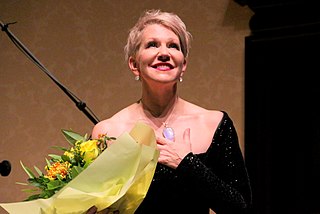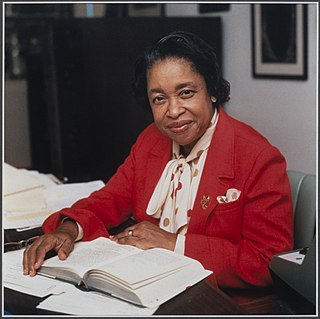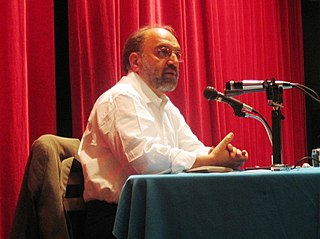A Quote by Dalai Lama
Concern yourselves more with the needs of others, with the needs of all humanity, and you'll have peace of mind.
Quote Topics
Related Quotes
As a species, we have evolved to survive. And the way we do it is by straining and straining and, at last, every few generaitons, giving brith to genius. The one who invents the wheel. And light. And flight. The one who builds a city, a nation, an empire...I'll put it bluntly. Human beings are free excpet when humanity needs them. Maybe humanity needs you. To do something. Maybe humanity needs me - to find out what you're good for.
You... are now servants to the ear that needs quiet solace, and the eye that needs the consolation of beauty, servants to the mind that needs desperate repose or pointed inquiry, to the heart that needs invitation to flight or silent understanding, and to the soul that needs safe landing, or fearless, relentless enlightenment.
An affectionate disposition not only makes the mind more peaceful
and calm, but it affects our body in a positive way too. On the
other hand, hatred, jealousy and fear upset our peace of mind, make
us agitated and affect our body adversely. Even our body needs peace
of mind and is not suited to agitation. This shows that an
appreciation for peace of mind is in our blood.
It is God, Who is merciful and grants everyone what he needs, Who is building him up when He gives him more than he needs; in doing so He shows the abundance of His love for men and teaches him to give thanks. When He does not grant him what he needs, He makes him compensate for the thing he needs through the working of the mind and teaches him patience.
It is not enough to be compassionate. You must act. There are two aspects to action. One is to overcome the distortions and afflictions of your own mind, that is, in terms of calming and eventually dispelling anger. This is action out of compassion. The other is more social, more public. When something needs to be done in the world to rectify the wrongs, if one is really concerned with benefitting others, one needs to be engaged, involved.
When I save, I lay something aside for future need. If I sense God's leading, I will give it away to meet greater needs. When I hoard, I'm unwilling to part with what I've saved to meet others' needs, because my possible future needs outweigh their actual present needs. I fail to love my neighbor as myself.




































